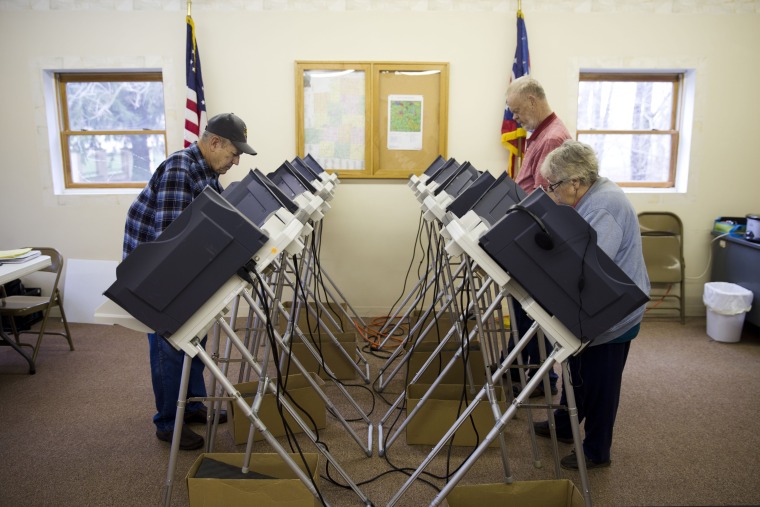A federal appeals panel has approved a bid by Ohio Republicans to reduce the early voting period and eliminate same-day voter registration, the latest in a string of court decisions that are setting the rules for voting access this fall.
Although Ohioans will still have four weeks of early voting, the Tuesday decision could make it harder for some voters to cast a ballot in one of the most pivotal swing states this fall. In 2012, 59,000 Ohioans, disproportionately racial minorities, voted during the week at issue.
By 2-1, a panel for the 6th U.S. Circuit Court of Appeals overturned a lower court ruling in May that the move violated the Voting Rights Act by discriminating against blacks and Hispanics.
Related: Virginia Restores Right to Vote to Thousands of Ex-Felons
"Federal judicial remedies, of course, are necessary where a state law impermissibly infringes the fundamental right to vote,” wrote Judge David McKeague for the appeals panel’s majority. “No such infringement having been shown in this case, judicial restraint is in order."
"Ohio offers a generous number of days, hours and ways to vote—making us one of the easiest states in which to cast a ballot,” said Secretary of State Jon Husted, a Republican who defended the cuts, in a statement. “This issue has been dragged through the courts by political activists twice over the course of several years, and both times, it has ended with the same result: Ohio's laws are fair and constitutional."
Marc Elias, a lawyer for the plaintiffs who is also a top lawyer for Hillary Clinton’s presidential campaign, did not immediately respond to a request for comment on whether the ruling would be appealed either to the full appeals court or to the U.S. Supreme Court.
Related: North Carolina GOP Out to Limit Crucial Early Voting Period
Tuesday’s ruling is the latest step in a decade-plus fight over voting access in the perennial swing state. In 2004, all-day lines in minority- and student-heavy neighborhoods kept large numbers of voters, disproportionately Democrats, from the polls. President George W. Bush won Ohio, and with it the election, by 119,000.
In the following years, state Democrats implemented reforms to make voting easier, including extending the early voting period and creating a week, known as Golden Week, when voters could register and vote early all in one trip to the polls.
After Republicans regained control of the state legislature and governorship in 2011, they moved in the opposite direction. In 2014, lawmakers cut the state’s early voting period from 35 to 28 days, eliminating Golden Week in the process.
Related: Why Don't People in Nevada Vote?
At trial, experts for the plaintiffs offered evidence that both same-day registration and early voting were used disproportionately by racial minorities.
The Ohio Democratic Party is a plaintiff in the lawsuit. Both McKeague and Judge Richard Griffin, who joined the majority opinion, were appointed by President George W. Bush. Judge Jane Branstetter Stranch, who dissented, was appointed by President Obama.
In addition to the presidential race, where polls show Hillary Clinton and Donald Trump locked in a close contest in Ohio, the state also hosts a competitive Senate race.
Tuesday's ruling goes somewhat against the grain of recent voting rights rulings in states across the country. Texas, North Carolina, Wisconsin, North Dakota, and Kansas all have seen restrictive voting laws struck down or weakened over the last six weeks, though several of those decisions are being appealed.
